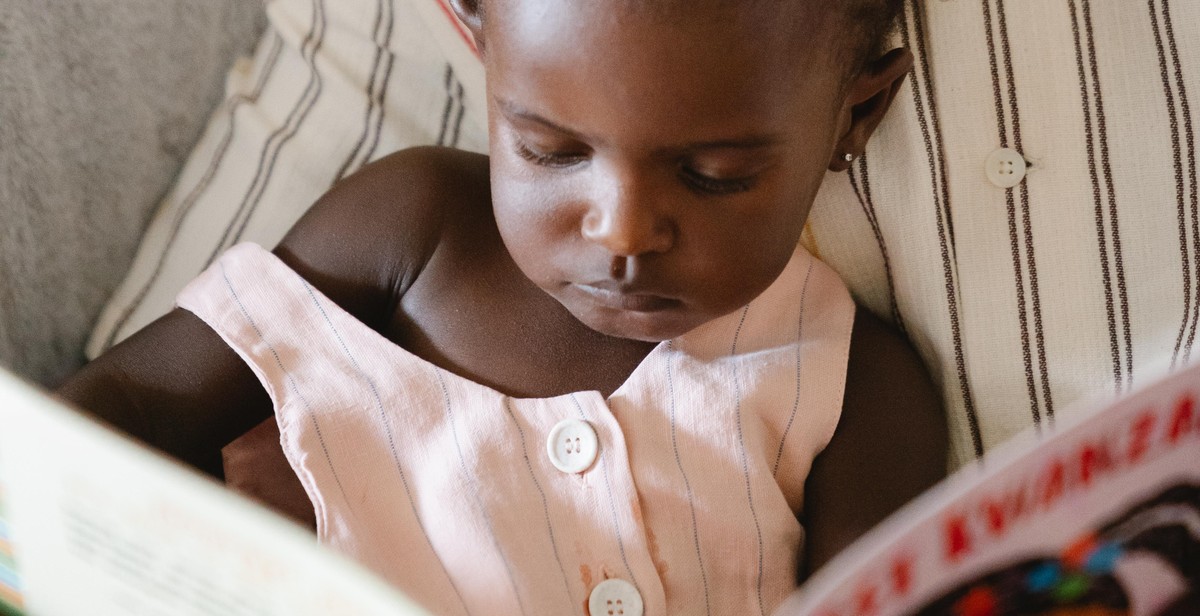How to Introduce Reading to Your Baby: Nurturing a Love for Books from an Early Age
Reading is one of the most important skills a child can learn, and it’s never too early to start. Introducing your baby to books at a young age can help them develop a love for reading that will last a lifetime. Not only does reading help with language development and cognitive skills, but it also provides a bonding experience between parent and child.
Benefits of Early Reading
Research has shown that reading to babies can have numerous benefits, including:
- Building vocabulary and language skills
- Developing cognitive skills and memory retention
- Encouraging imagination and creativity
- Strengthening the bond between parent and child
By introducing reading to your baby early on, you can set them up for success in school and beyond. But how do you get started?
Tips for Introducing Reading to Your Baby
Here are some tips for nurturing a love of books in your baby:
- Start early: Even newborns can benefit from being read to, so don’t wait!
- Make it a routine: Incorporate reading into your daily routine, such as before naptime or bedtime.
- Choose age-appropriate books: Look for board books with bright colors and simple pictures for younger babies, and books with more detailed illustrations and stories for older babies.
- Make it interactive: Point out pictures and ask questions to engage your baby in the story.
- Have fun: Reading should be enjoyable for both you and your baby, so make it a fun and relaxing experience.
With these tips, you can introduce reading to your baby and help them develop a lifelong love for books.

Why Reading to Your Baby is Important
Introducing reading to your baby is not just a fun activity, but an essential part of their development. Reading to your baby can benefit their brain development, language development, bonding, and emotional development.
Brain Development
Reading to your baby stimulates their brain development by exposing them to new words, sounds, and concepts. This helps to build neural connections in their brain, which is crucial for their cognitive development. Studies have shown that babies who are read to regularly have a larger vocabulary and better cognitive skills than those who are not.
Language Development
Reading to your baby also plays a significant role in their language development. It helps them to learn the basic sounds and rhythms of speech, which are essential for developing their language skills. Additionally, reading to your baby helps them to learn new words and phrases, which can help to expand their vocabulary.
Bonding
Reading to your baby is also an excellent way to bond with them. It provides a special time for you and your baby to connect and share an activity together. This can help to strengthen the bond between you and your baby, which is crucial for their emotional development.
Emotional Development
Reading to your baby can also help to promote their emotional development. It can help to soothe them when they are upset and provide them with a sense of comfort and security. Additionally, reading to your baby can help them to develop empathy and understanding, as they learn about different emotions and experiences through the stories you read to them.
Overall, introducing reading to your baby is an essential part of their development. It can benefit their brain development, language development, bonding, and emotional development. So, start reading to your baby today and help them to develop a love for books from an early age.

When to Start Reading to Your Baby
It is never too early to start reading to your baby. In fact, many experts recommend starting as soon as your baby is born. Reading to your baby is not only a great way to bond with them, but it also helps with their cognitive development, language skills, and introduces them to the world of books.
The First Few Months
During the first few months of your baby’s life, they may not be able to focus on the words or pictures in a book. However, they can still benefit from hearing your voice and the rhythm of language. Choose books with simple, repetitive text and bright, contrasting colors. Board books or cloth books are great options for this age group as they are durable and easy for little hands to hold.
3-6 Months
As your baby grows and develops, they will become more interested in the pictures and textures of books. Choose books with large, bold pictures and different textures for them to touch and explore. You can also try books with sound effects or lift-the-flap books to keep them engaged.
6-12 Months
By this age, your baby will be more interactive and may even try to turn the pages themselves. Choose books with simple stories and characters they can relate to. Board books with rhyming text or songs are also great options to introduce them to language and rhythm.
Remember, the most important thing is to make reading a fun and enjoyable experience for both you and your baby. Don’t worry about finishing a book or sticking to a strict reading schedule. Reading should be a relaxing and bonding activity for you and your little one.

Choosing the Right Books
When it comes to introducing reading to your baby, it is essential to choose the right type of books that will not only engage them but also help them develop their language and cognitive skills. Here are some types of books that you can consider:
Board Books
Board books are perfect for babies as they are sturdy and can withstand rough handling. These books are designed with bright, colorful illustrations and simple text that introduces babies to basic concepts such as colors, shapes, and animals. Board books with touch-and-feel elements can also help stimulate your baby’s senses and enhance their learning experience.
Interactive Books
Interactive books are books that encourage babies to participate in the reading process. These books come with movable parts, flaps to lift, and buttons to press, making them more engaging and entertaining. Interactive books can help improve your baby’s hand-eye coordination, fine motor skills, and problem-solving abilities.
Picture Books
Picture books are an excellent choice for toddlers and older babies. These books are filled with colorful illustrations and simple text that tells a story. Picture books can help improve your baby’s vocabulary, listening skills, and imagination. They can also help your baby develop a love for reading and storytelling.
When choosing books for your baby, it is important to consider their age and developmental stage. You can also choose books that align with your baby’s interests and hobbies. By choosing the right books, you can help your baby develop a love for reading and set them on the path to becoming a lifelong reader.

Making Reading a Part of Your Baby’s Routine
Introducing reading to your baby can be a great way to nurture a love for books from an early age. To make reading a part of your baby’s routine, it’s important to set a specific time for reading, create a cozy reading environment, and make reading fun and interactive.
Set a Specific Time for Reading
Setting a specific time for reading can help your baby develop a reading routine. This can be before bedtime, after bath time, or during a specific part of the day. Choose a time that works best for you and your baby, and stick to it as much as possible. Consistency is key when it comes to establishing a reading routine.
Create a Cozy Reading Environment
Creating a cozy reading environment can make reading more enjoyable for your baby. You can create a reading nook with a comfortable chair or bean bag, soft lighting, and a few favorite books. You can also use a special blanket or stuffed animal to make the reading experience more comfortable and familiar for your baby.
Make Reading Fun and Interactive
Making reading fun and interactive can help your baby stay engaged and interested in the story. You can use different voices for different characters, ask questions about the story, or encourage your baby to touch and feel different parts of the book. You can also use books with bright colors, textures, and sounds to make the reading experience more interactive and stimulating.
By setting a specific time for reading, creating a cozy reading environment, and making reading fun and interactive, you can help your baby develop a love for books from an early age.

Tips for Engaging Your Baby During Reading Time
Reading to your baby can be a fun and interactive experience for both you and your little one. Here are some tips to help engage your baby during reading time:
Use Different Voices and Expressions
Babies love hearing different voices and sounds. Use different tones and expressions to bring the story to life. Get into character and use different voices for each character in the book. This will not only help your baby stay engaged but also help with their language development.
Encourage Participation and Interaction
Encourage your baby to participate and interact with the story. Ask them questions about the pictures and characters in the book. Let them turn the pages and point to objects in the book. This will help them develop their cognitive and motor skills.
Point Out and Name Objects and Characters in the Book
As you read, point out and name objects and characters in the book. This will help your baby learn new words and concepts. You can also use this as an opportunity to teach them about colors, shapes and sizes.
By using these tips, you can make reading time a fun and interactive experience for your baby. Remember to keep it simple and fun, and don’t worry if your baby doesn’t understand everything. The most important thing is to create a love for books and reading from an early age.

Conclusion
Introducing reading to your baby is an important step in nurturing their love for books from an early age. It can help them develop language skills, improve their cognitive abilities, and promote a lifelong love for learning.
When introducing reading to your baby, it’s important to start early and make it a regular part of your routine. Choose books that are age-appropriate and engaging, and make sure to read with enthusiasm and expression.
As your baby grows, continue to encourage their love for books by providing a variety of reading materials and creating a cozy reading nook in your home. You can also make reading a fun and interactive experience by asking questions, pointing out pictures, and using different voices for each character.
Remember, introducing reading to your baby is just the beginning. By nurturing their love for books from an early age, you can help set them on a path towards a lifetime of learning and exploration.
| Benefits of Introducing Reading to Your Baby: |
|---|
| 1. Language development |
| 2. Cognitive development |
| 3. Promotes a love for learning |
| 4. Bonding experience |
So go ahead, grab a book and snuggle up with your little one. You’ll be amazed at the benefits that reading can bring to your baby’s development and your relationship with them.
